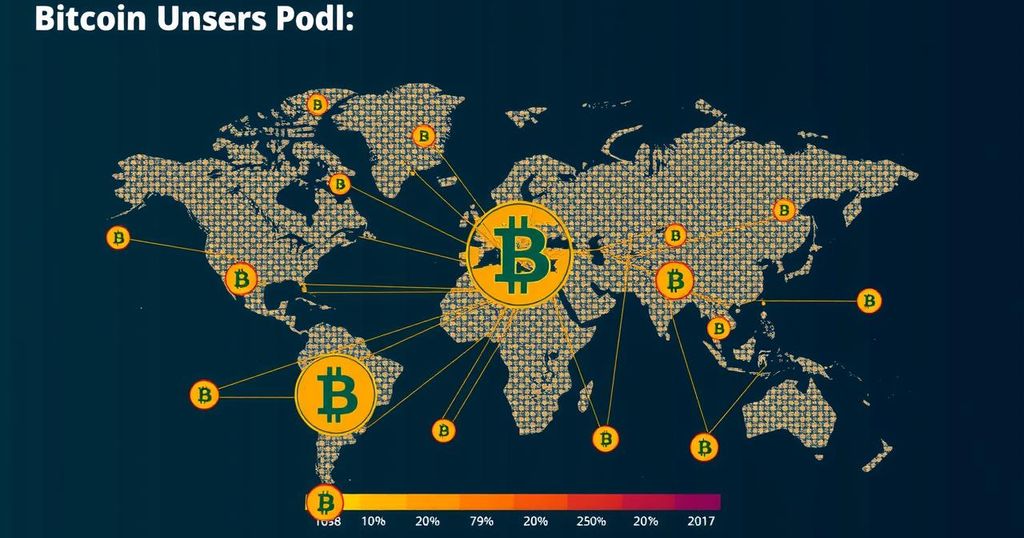FDIC Survey Reveals Bitcoin Users Are Mostly Wealthy and Banked
A recent FDIC survey indicates Bitcoin users are primarily wealthy, white, and banked, contrary to expectations that cryptocurrencies serve the unbanked. Only 1.2% of unbanked households engage with crypto, primarily as an investment. The findings emphasize socioeconomic disparities in cryptocurrency adoption, with higher usage among affluent and educated demographics.
A recent survey conducted by the Federal Deposit Insurance Corporation (FDIC) has unveiled that Bitcoin users predominantly comprise affluent and white individuals. Keith Ernst, the associate director of the FDIC’s division of depositor and consumer protection, emphasized that despite high expectations for cryptocurrencies to provide financial solutions for the unbanked, reality does not reflect this potential. The findings indicate that merely 1.2% of unbanked households engage with cryptocurrency, in contrast to 6.2% of underbanked and 4.8% of fully banked households. Among the 30,000 households surveyed, 92% of cryptocurrency users reported holding crypto assets primarily as investments rather than for transactional purposes. Usage rates vary significantly based on household income, education, and demographics, with 7.5% of Asian households and 5.2% of White households participating in crypto, compared to only 3.2% of Black households and 3.5% of Hispanic households. Moreover, younger and higher-income households showed markedly higher engagement with cryptocurrency, highlighting the socioeconomic disparities in access and usage.
The FDIC released its National Survey of Unbanked and Underbanked Households, which for the first time included questions regarding cryptocurrency usage. The survey sought to examine the demographics utilizing crypto and to gauge the extent of its adoption across various socioeconomic groups. Despite the cryptocurrency market boasting a valuation of roughly $3 trillion, the actual engagement with crypto among the traditionally unbanked populations was disappointingly low, prompting discussions on the true impact of digital currencies on financial inclusion and economic mobility.
The findings from the FDIC’s survey reveal that while cryptocurrencies hold immense market value, their utilization as a financial tool for unbanked populations remains minimal. Continued advocacy for cryptocurrency as a means of financial inclusion may need to reconsider its effectiveness in reaching those most in need, as the demographic landscape of current users skews toward wealthier and more educated segments. The data suggests that cryptocurrency is more commonly viewed as an investment opportunity rather than an accessible financial service.
Original Source: fortune.com








Post Comment